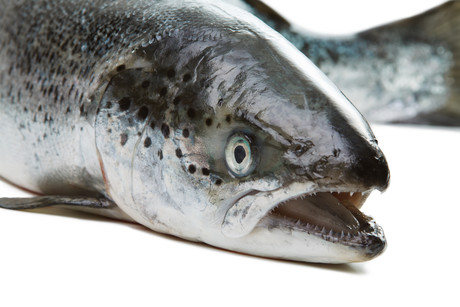Vaccines fail to protect farmed fish from disease

Vaccines used by commercial fish farmers may actually be doing more harm than good. Although they aim to protect fish against disease, a study has found that vaccinated fish show more symptoms when contracting diseases and have an increased death rate.
Testing the effectiveness of a vaccine against Piscirickettsia salmonis, researchers from the University of Waterloo, the Pontifical Catholic University of Valparaiso and Chile’s University of Valparaiso compared how vaccinated and non-vaccinated Atlantic salmon reacted when exposed to the sea louse Caligus rogercresseyi.
“Today’s vaccines are marketed to fish farms as necessary disease prevention and are even required by some insurance companies, but they are not nearly as effective as needed under real-world conditions,” said Brian Dixon, Biology Professor at Waterloo and Canada Research Chair in Fish and Environmental Immunology. “Some operators are giving five vaccinations per fish and then there are fish losses from the stress of receiving multiple handlings and injections.”
Compared with the unvaccinated group, the vaccinated fish did have less bacteria living inside them, but they also showed more signs of infection and increased mortality.
Researchers concluded that the salmon could not fight off more than one disease at the same time. A parasite can override the defences of the vaccine, leaving the fish vulnerable to other diseases.
Salmon farmers in Chile have experienced this issue, as salmon are often raised in open cages off the coast, which exposes them to a variety of pathogens, the most common of which is sea lice.
A major problem with vaccines for fish is that they are often based on the current human model. Instead, researchers believe it is important for veterinary pharmaceutical companies to change how they design and test vaccines specifically for fish.
“Fish have a limited number of resources to respond to an illness so their immune system makes choices — when they’re infected by sea lice, for example, the fish’s immune system is suddenly geared to respond to that specific threat, leaving them totally exposed to other threats like P. salmonis,” explained Dixon. “It’s like sending ambulances out to all emergencies when in fact some of those emergencies need firefighters.”
The study cited previous research in which salmon were pre-infected with L. salmonis, which significantly reduced their survival rate when they contracted the Infectious Salmon Anaemia Virus (ISAV) in 2008. This posed a substantial threat to Chile’s farmed salmon industry.
To prevent this from occurring again, salmon farmers tried to reduce their use of antibiotics to treat reoccurring diseases, and instead turned to vaccines as a precautionary measure. However, vaccines are expensive for Chilean operators, amounting to up to 30% of the cost of raising each fish.
Overall, the findings showed the detrimental effects of co-infection on survival, growth, bacterial load and the need for more research on safer vaccines for fish.
The findings were published in Scientific Reports.
AFGC reviews progress on food and grocery manufacturing targets
In its latest food and grocery manufacturing sector report, AFGC reflects on the...
$15m AI space project to help boost Australian agriculture
The Australasian Space Innovation Institute is developing an AI-enabled geospatial national...
Barry Callebaut opens chocolate innovation centre in Singapore
The Callebaut Global Innovation Center is helping to advance the future of chocolate and cocoa...











